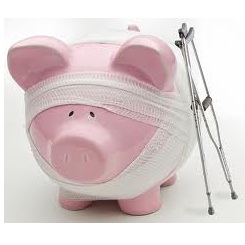RSPs Need Protection Too!

RSP season must be a delight for the people selling advertising. The ads pitching RSPs are everywhere, online and offline.
We are taught from an early age to save for retirement with annual (or more frequent) RSP contributions, but few people consider the tax consequences of simply getting their own money back. Hint: they have to pay income tax on all the withdrawals at their marginal tax rate. At death, providing there is no spousal roll-over, all contributions are taxed. That means $1M of RSP/RIF income would be subject to $460,000 of tax.
Aside from these ultimate tax liabilities, protecting retirement goals can be very difficult if certain life events occur. For example, what would happen if somebody suffers a heart attack or stroke or gets diagnosed with cancer?
Treating and coping with serious illness often brings significant and unexpected costs not covered by government or employee health plans. Consider just the lost income resulting from time away from work for both patient and caregivers.
Withdrawing money from RSPs to pay for treatments or replace lost income brings immediate and negative tax consequences. Depleting retirement savings to finance a recovery is not a desirable outcome.
You can protect your own retirement savings now with a Critical Illness Insurance policy that will pay up to $2 million following diagnosis of heart attack, stroke, cancer or any one of more than 20 covered conditions. Company owners and executives can use the S.O.S.™ Shared Ownership Strategy to get this important protection while enjoying guaranteed pre-tax returns in excess of 30%.
A healthy individual now contributing $500 per month to an RSP should consider reducing the monthly deposit to $400 and use the $100 difference to fund defensive retirement protection through Critical Illness Insurance.
Choosing the return of premium option allows you to get back all of your premiums at any time after 15 years just for staying healthy.
If death occurs from something that isn’t covered by the policy every dollar of premiums paid can be returned to the estate.
No wonder it’s my favourite insurance product!
My friend and client Dr. Howard Rocket was a highly successful dentist-turned-entrepreneur when he suffered a massive stroke in 1995. With valiant medical attention and good fortune Howard survived and made a stunning recovery, but the experience changed his life forever both in body and attitude. He has since co-authored A Stroke of Luck, his personal story of recovery and how it changed his life and his outlook. The Globe and Mail interviewed both of us for an article on the importance of Critical Illness Insurance. Read it here.
Please be in touch if you have any ideas or suggestions for future topics.